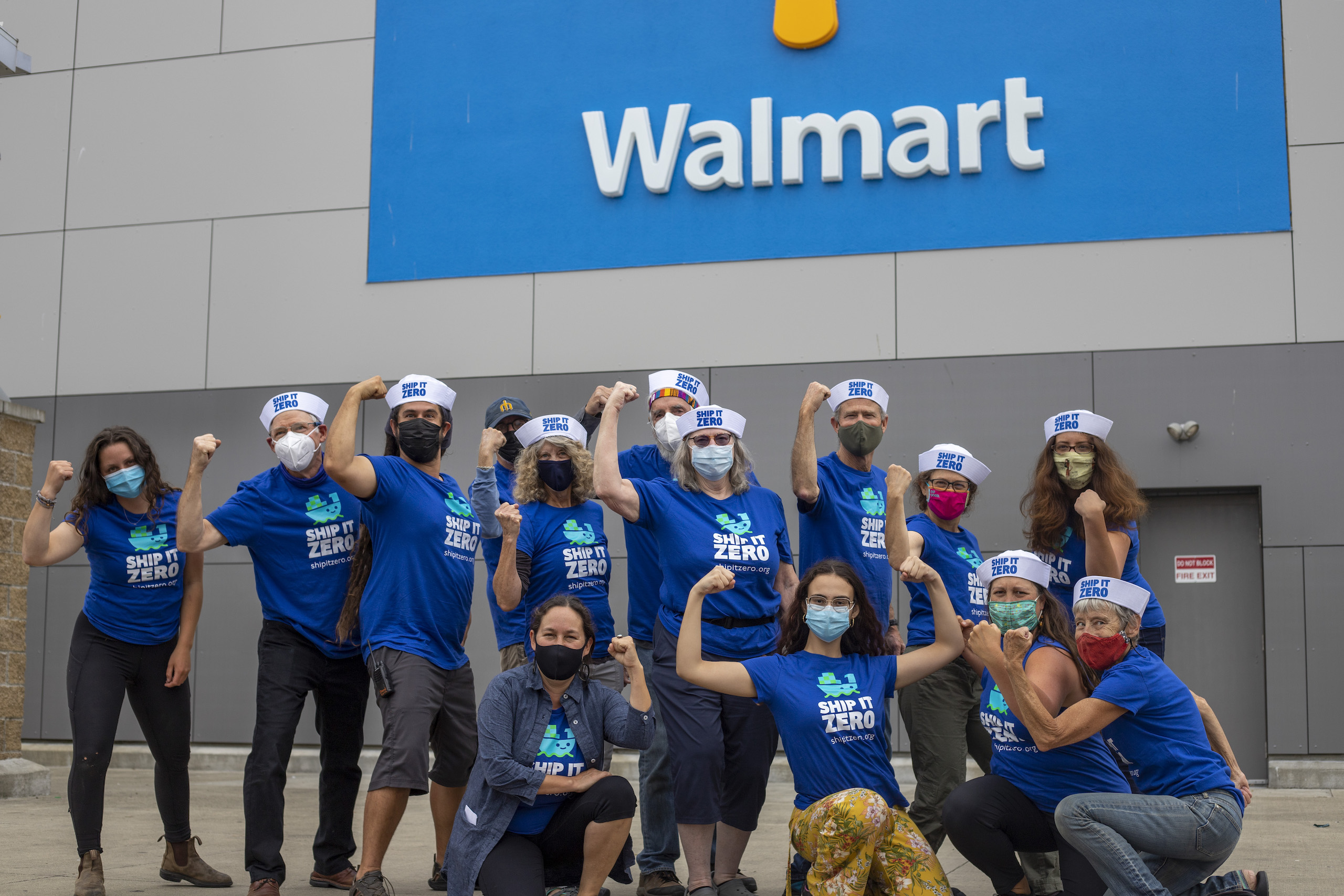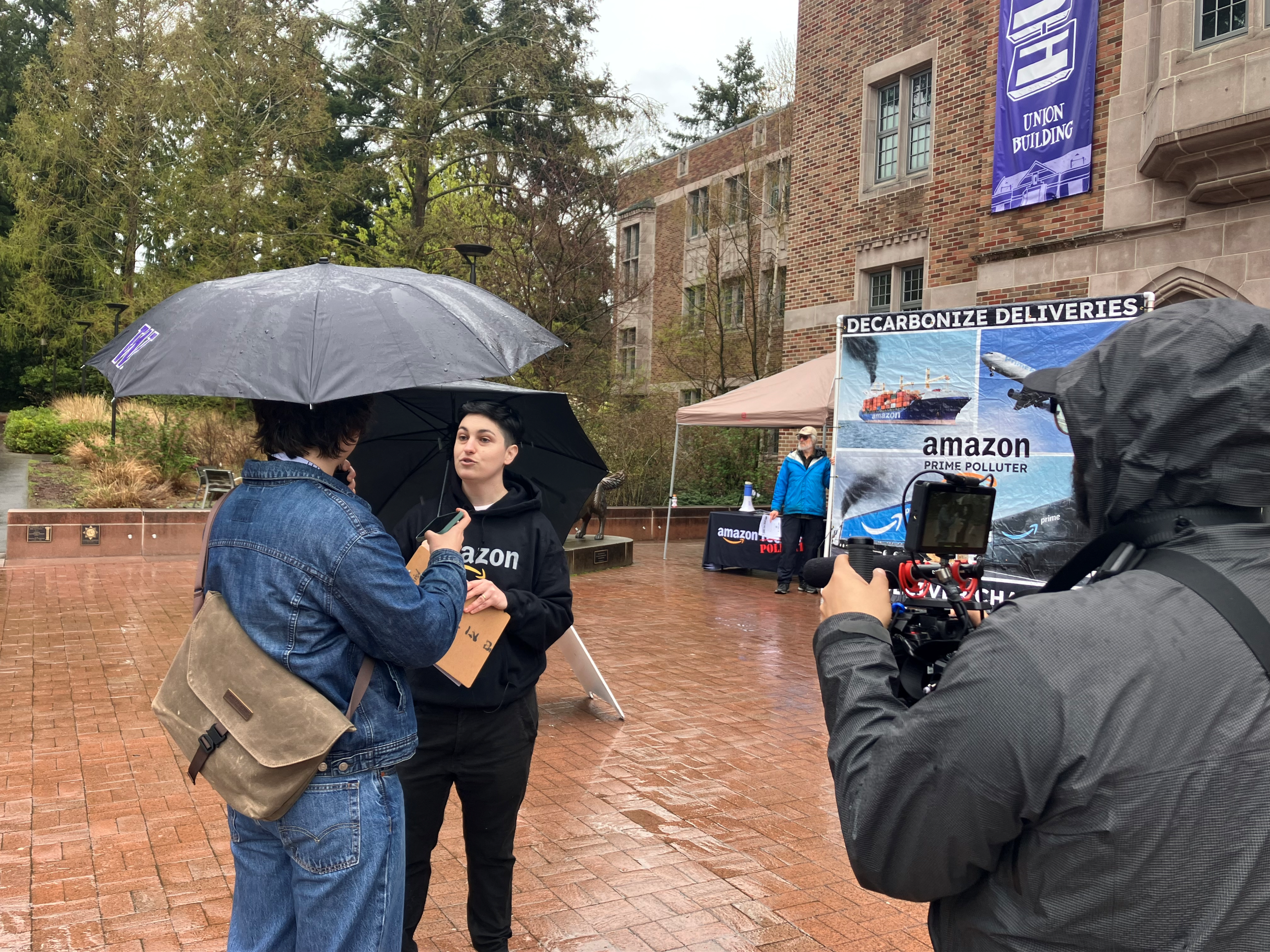


![]() Inaugural Report Card on Ocean Ship Pollution: Major Retailers, Ocean Carrier Lines Earn Failing Grades
Inaugural Report Card on Ocean Ship Pollution: Major Retailers, Ocean Carrier Lines Earn Failing Grades
LOS ANGELES (August 3, 2023) — A report card released today by the Ship It Zero campaign reveals that few retailers and carrier lines are tracking their devastating climate change emissions from global ocean shipping. Additionally, few carriers are taking the necessary steps to decarbonize their shipping fleets in the face of the climate change crisis and are failing to limit shipping emissions to keep in the range of a 1.5 degrees C (2.7 degrees F) global temperature rise. The shipping industry is failing to do its part to address the climate crisis, and today’s report card puts retailers and carrier lines on notice to clean up their shipping problem.
Ship It Zero’s Shipping Decarbonization Report Card is designed to evaluate major retailers and shipping carriers on their commitment to rapid decarbonization and development of zero emissions fuels for maritime shipping. Of the retailers scored, Amazon (D), Home Depot (F), Lowe’s (F) and Walmart (F) received failing grades, while IKEA received a B+ overall, with no retailer acing their work on addressing their shipping pollution. Among the carrier lines scored, Mediterranean Shipping Company, Ocean Network Express, Hyundai Merchant Marine were in the middle of the pack with Cs, APM-Maersk earned a B and CMA CGM came in with a D. Carriers continue to be over reliant on false solutions like liquefied natural gas, a potent fossil fuel, and scrubbers.
- Read the report card
In July, the United Nation’s shipping regulator, the International Maritime Organization, passed a Revised Greenhouse Gas strategy for the shipping industry including 30% and 80% emissions reduction targets for 2030 and 2040, respectively. These targets are not nearly aggressive enough to put the industry on track to stay within 1.5 degrees Celsius (2.7 degrees Fahrenheit) of global heating set out by the Paris Accord. Indeed, in March, the United Nations Intergovernmental Panel on Climate Change issued AR6 Synthesis Report: Climate Change 2023, a final warning on how to maintain the Paris Accord’s 1.5 degrees C (2.7 degrees F) global heating trajectory, requiring global climate emissions to peak before 2025 and be cut 43% from 2019 levels by 2030.
STATEMENTS FROM SHIP IT ZERO
“While the globe is burning, retailers and cargo carriers are doing little to address emissions from shipping their goods,” said Eric Leveridge, Ship It Zero Lead, Pacific Environment. “Home Depot, Lowe’s, Walmart, Amazon and CMA CG, in particular, are failing to clean up their shipping pollution while Mediterranean Shipping Company, Ocean Network Express, Hyundai Merchant Marine are barely passing. Addressing the climate crisis is urgent and we have no time to waste, retailers and cargo carriers must act now.”
“Our report card clearly shows that, while some retailers and cargo carriers have made progress, there’s still a long way to go,” said Kendra Ulrich, Shipping Campaigns Director for Stand.earth. “Decarbonizing the shipping industry is urgent and we are putting retailers and their cargo carriers on notice. We urge companies to commit to achieving 100% zero-emission, fossil-free ocean shipping by 2030 to ensure a healthier, cleaner tomorrow for our communities and our climate.”
FULL LIST OF RETAILERS & CARRIERS WITH GRADES
Retailers
Walmart: F
Target: F
Amazon: D
IKEA: B+
Home Depot: F
Lowe’s: F
Ashley Furniture: F
Living Spaces: F
Williams-Sonoma: F
Costco: F
Samsung: F
LG Electronics: F
Dell: F
Hewlett-Packard: F
VF Corporation: F
H&M: D
Adidas: F
Nike: D
Carriers
APM-Maersk: B
Mediterranean Shipping Company: D
Cosco: D
CMA CGM: D
Hapag-Lloyd: F
Ocean Network Express: C
Evergreen: F
Hyundai Merchant Marine: C
Yang Ming: F
Pacific International Lines: F
PREVIOUS SHIP IT ZERO RESEARCH
The report card follows the March 2023 Ship It Zero study that is an in-depth look at the nation’s largest major companies that import goods into the U.S. — including Walmart, Home Depot, LG Electronics, Nike, Target, Amazon and IKEA — and reveals new data on ocean shipping emissions generated from the transportation of goods from the technology, furniture and fashion sectors.
That report, entitled All Brands On Deck: Top Furniture, Fashion, Retail & Technology Companies Must Act to Abandon Dirty Ships, revealed that Walmart, Target and Home Depot were the largest ocean import polluters of 2021, as e-commerce demands skyrocketed in the U.S. and globally. The retailers studied in the report emitted 3.5 million metric tons of greenhouse gas emissions through the import of goods into the U.S. alone – equivalent to the emissions from 400,000 U.S. homes. The report also shows the ports that have been most impacted by imports and the communities that are facing growing emissions leading to increasing rates of pollution and health risks.
SHIPPING INDUSTRY’S POLLUTION PROBLEM
The global shipping industry accounts for 3% of global climate emissions, more than global air travel. If shipping were a country, it would be the world’s sixth largest climate polluter. But since maritime shipping negotiated itself out of the U.N. Paris Agreement, the effort to reduce emissions in the industry has been slower than in other sectors.
Approximately 90% of the world trade is transported by sea, and current business-as-usual scenarios project emissions will grow up to 50% over 2018 levels. While the International Maritime Organization noted increased ship size and operational improvements aimed at creating better fuel efficiency have resulted in a decrease in emissions intensity, annual absolute emissions are still increasing.
###
Ship It Zero is a climate and public health campaign to move the world’s largest companies to 100% zero-emissions ocean shipping. It urges companies such as Walmart, Home Depot, Amazon, Target and IKEA — to transition to 100% zero-emissions cargo shipping vessels by 2030. This goal will ensure the shipping industry does its fair share in helping to keep global warming under 1.5 degrees Celsius, the target scientists say is needed to avoid the worst consequences of the climate crisis.
Media Contacts:
Gwen Dobbs, Campaign Communications Director, Pacific Environment, gdobbs@pacificenvironment.org, 202 329 9295 (Pacific Time)
Shane Reese, Corporate Campaigns Media Director, Stand.earth, shane.reese@stand.earth, +1 919 339 3785 (Eastern Time)

Recent Updates





